FC Porto is a Portuguese professional sports club based in Porto. It is most famous for its football team, which competes in the Primeira Liga, the highest level of Portuguese football. The club is one of the "Big Three" teams in Portugal, alongside Benfica and Sporting CP.
August 1906: Revival of FC Porto
On August 2, 1906, FC Porto was revived after a period of inactivity, with José Monteiro da Costa appointed as its president.
1906: Inauguration of the Campo da Rainha
In 1906, the Campo da Rainha (Queen's Field) was inaugurated with an exhibition game against Boavista, becoming the club's first ground.
1906: Club wore kits with a variety of colors and patterns
In 1906, the club's first official team wore kits with a variety of colors and patterns, which included white shirts with red collars or vertical blue stripes, and even red shirts.
December 1907: First match against a foreign team
On December 15, 1907, FC Porto played its first match against a foreign team, hosting Real Fortuna from Spain.
1909: Porto stipulated the club's uniform
In 1909, Porto stipulated in its first statutes that the players had to use "a shirt with blue vertical stripes, black shorts, and personal footwear" as the club's uniform, at every training and match.
1910: Creation of the club's first crest
In 1910, the club's first crest was created, consisting of an old blue football with white seams bearing the club name's initials in white.
1911: Club searched for a new ground
By 1911, the Campo da Raínha was becoming too small for the rapidly growing attendances. After being notified about the sale of the ground for construction of a factory, the club searched for a new ground.
April 1912: First match against Benfica
On April 28, 1912, the first match between Porto and Benfica – traditionally referred to as O Clássico (The Classic) – took place, and ended with a 2–8 win for Benfica.
1912: Joining efforts to establish the Porto Football Association
In 1912, FC Porto joined efforts with Leixões to establish the Porto Football Association.
January 1913: Opening of the Campo da Constituição
In January 1913, the Campo da Constituição (Constitution Field) was opened with a match against Oporto Cricket and Lawn Tennis Club and hosted Porto's home matches for the regional championship.
1916: Winning the Taça José Monteiro da Costa
In 1916, FC Porto claimed a third consecutive victory in the Taça José Monteiro da Costa, becoming outright winners of the competition.
November 1919: First meeting between Porto and Sporting CP
On November 30, 1919, the first meeting between Porto and Sporting CP occurred during a friendly tournament organised by Porto.
1920: Winning the regional championship
By the end of the 1920-21 season, FC Porto had been regional champions six times in seven years.
1920: Porto's first victory against Benfica
Porto's first victory (3–2) against Benfica came only in 1920.
1921: Creation of the Campeonato de Portugal
The 1921-22 season was marked by the creation of the first nationwide football competition, the Campeonato de Portugal.
October 1922: Crest changed to present-day appearance
On October 26, 1922, the crest was changed to its present-day appearance after the club approved a design by Augusto Baptista Ferreira.
1922: Porto won first national title
In 1922, the first official encounter between Porto and Sporting CP was in the first leg of the final of the inaugural Campeonato de Portugal, which Porto won 2–1 en route to its first national title.
1925: End of Adolphe Cassaigne's coaching
In 1925, French coach Adolphe Cassaigne left FC Porto, after being in charge of the team since 1906.
1933: Approval of a plan to build a new stadium
In 1933, Porto approved a plan to build a new stadium to accommodate and meet the demands of larger attendances.
1933: Denied participation in the Campeonato de Portugal
In 1933-34, FC Porto was denied participation in the Campeonato de Portugal.
1934: Appearing in every Primeira Liga season
Since the establishment of the Primeira Liga in 1934, FC Porto, along with Benfica and Sporting CP, has participated in every season.
1938: Winning the first edition of Primeira Liga
In 1938, Porto won the inaugural edition of the Primeira Liga.
1941: Almost missing a place in Primeira Divisão
In 1941-42, FC Porto almost missed a place in the Primeira Divisão.
1946: Returning to a top-three finish
In the 1946-47 season, FC Porto returned to a top-three finish in the Primeira Divisão.
1947: Purchase of land for the new stadium
In 1947, the project to build a new stadium only moved forward with the purchase of 48,000 square metres (12 acres) of land in the eastern side of the city.
May 1948: Victory against Arsenal
On May 7, 1948, Porto beat English champions Arsenal 3–2 in a friendly match at the Estádio do Lima.
1948: Defeating Arsenal in a friendly match
In 1948, FC Porto defeated English champions Arsenal 3-2 in a friendly match, leading to the creation of the Arsenal Cup.
January 1950: Construction of Estádio das Antas began
In January 1950, the construction of the Estádio do Futebol Clube do Porto – better known as Estádio das Antas (Antas Stadium) began.
May 1952: Inauguration of the Estádio das Antas
On May 28, 1952, the Estádio das Antas was inaugurated with a ceremony and a match against Benfica, which Porto lost 2–8.
1955: Winning the Primeira Divisão
In the 1955-56 season, FC Porto won the Primeira Divisão.
1956: Winning the Taça de Portugal and debut in European Competitions
In 1956, FC Porto beat Torreense to win its first Taça de Portugal and achieved its first double. As the Portuguese league winner, Porto made its debut in European competitions by qualifying for the 1956–57 European Cup.
1959: Winning the Portuguese League title
In 1959, under Béla Guttmann's coaching, Porto won the Portuguese League title.
1961: Runner-up finishes
Between 1961-62 and 1964-65, FC Porto had four consecutive runner-up league finishes.
1964: Runner-up finishes
Between 1961-62 and 1964-65, FC Porto had four consecutive runner-up league finishes.
1968: Cup triumph responsible by José Maria Pedroto
José Maria Pedroto was responsible for the previous cup triumph in 1968.
1969: Worst-ever league classification
In the 1969-70 season, FC Porto had its worst-ever league classification, finishing in ninth place.
December 1973: Death of captain Pavão
On December 16, 1973, during a league match, FC Porto's 26-year-old captain Pavão collapsed on the pitch and later died at the hospital.
1975: Adidas became the first sports apparel manufacturers to provide kits for the club.
In 1975, Adidas became the first sports apparel manufacturers to provide kits for the club.
1976: Construction of a two-tier stand
In 1976, the open east sector (Marathon Door) of the Estádio das Antas was closed with the construction of a two-tier stand, raising the capacity to 70,000.
1976: Return of José Maria Pedroto
In the 1976-77 season, José Maria Pedroto returned to FC Porto as head coach.
1977: Winning the Taça de Portugal
In the 1976-77 season, José Maria Pedroto guided FC Porto to its fourth title in the Taça de Portugal.
December 1981: Winning the Supertaça Cândido de Oliveira
In December 1981, FC Porto overcame Benfica to win the inaugural staging of the Portuguese Super Cup, the Supertaça Cândido de Oliveira.
April 1982: Return of Pedroto
In April 1982, Pedroto returned as coach by the hand of the club's newly elected president Jorge Nuno Pinto da Costa.
1982: Pinto da Costa assumed Porto's presidency
In 1982, Pinto da Costa assumed Porto's presidency and adopted a regionalistic and confrontational speech towards Lisbon, intensifying rivalries with Benfica and Sporting CP.
1983: Cup Winners' Cup final
In 1983, FC Porto reached the Cup Winners' Cup final but lost to Juventus.
1983: Fernando Gomes became Europe's top goalscorer
In 1983, Fernando Gomes was crowned as Europe's top goalscorer for the first time.
1983: Runners-up in the European Cup Winners' Cup
In the 1983-84 season, FC Porto were runners-up in the European Cup Winners' Cup.
May 1984: First major European final
On May 16, 1984, FC Porto played its first major European final in Basel, losing to Juventus.
1986: Retaining the league title
In 1986, FC Porto retained the league title, securing an entry to the 1986–87 European Cup.
1986: Works to lower the pitch and build an additional tier
In 1986, works to lower the pitch and build an additional tier in the place of the athletics and cycling track were concluded, setting the capacity to a new maximum of 95,000.
1987: Four titles in a single season
In 1987, FC Porto achieved four titles in a single season: UEFA Super Cup, Intercontinental Cup, Primeira Liga, and Taça de Portugal.
1987: Winning the European Cup, UEFA Super Cup and Intercontinental Cup
In 1987, FC Porto achieved significant international success by winning the European Cup (Champions League), the UEFA Super Cup against Ajax, and the Intercontinental Cup against Peñarol.
1987: Primeira Liga Title
In 1987, FC Porto won the Primeira Liga title.
1988: Injury-ridden season
In the 1988-89 season, FC Porto failed to win a trophy, with many players injured.
1991: Winning the Taça and Supertaça trophies
In 1991, Artur Jorge added the Taça and Supertaça trophies to the club's accolades.
1993: Hiring Bobby Robson
Midway through the 1993-94 season, FC Porto hired former England manager Bobby Robson.
1994: Winning First of Five Consecutive League Titles
In 1994, FC Porto began a dominant streak, winning the first of five consecutive Portuguese league titles, a Portuguese football record.
1994: Winning the Taça de Portugal and the Supertaça
In 1994, FC Porto won the Taça de Portugal final and secured both the 1993 and 1994 stagings of the Supertaça.
1995: Claiming the Primeira Divisão title
In 1995, FC Porto claimed the 1994-95 Primeira Divisão title with a win at Sporting CP's ground.
1996: Productive Champions League Performance
In 1996, the arrival of Brazilian players Artur and Mário Jardel proved highly productive in the UEFA Champions League, as their goals helped Porto beat Milan in Italy and win its group without defeats. Also, Jardel won the first of four consecutive Bola de Prata awards while at Porto.
1997: Stadium capacity reduced
By 1997, the placing of individual seats brought the capacity of the Estádio das Antas down to 55,000 due to stricter stadium safety regulations.
1997: Going public and creating satellite companies
In 1997, after going public, Porto created several satellite companies.
1998: Winning Fourth of Five Consecutive League Titles
In 1998, FC Porto continued their dominant streak, winning the fourth of five consecutive Portuguese league titles, a Portuguese football record.
1998: Fourth Consecutive League Title and Third Double
In 1998, FC Porto won the Primeira Divisão for the fourth straight season (the Tetra), matching Sporting CP's achievement in the early 1950s, and secured its third double after beating Braga in the Taça de Portugal Final.
1998: Fernando Santos tasked to win "Penta"
In 1998, Porto tasked Portuguese coach Fernando Santos with winning the club's fifth successive Primeira Divisão title (the Penta).
1999: Fifth successive Primeira Divisão title
In 1999, Fernando Santos accomplished the feat of winning the club's fifth successive Primeira Divisão title (the Penta), and Jardel's 36 goals win him the European Golden Shoe.
2000: Taça de Portugal trophy
In 2000, Porto finished four points behind Primeira Liga champions Sporting, but overcame them to lift its tenth Taça de Portugal trophy.
2000: Supertaça win against Boavista
In 2000, the team began the season with a Supertaça win against the 2000–01 Primeira Liga winners, Boavista.
2001: Sacking of Machado
In 2001, the elimination from the Taça de Portugal, four days after losing away for the Primeira Liga, precipitated the sacking of Machado after 36 matches in charge.
2002: Primeira Liga Title
In 2002, FC Porto won the Primeira Liga title.
2002: Signing of José Mourinho
In 2002, Porto signed José Mourinho as coach, who promised the club would win the next season's league title.
November 2003: Inauguration of Estádio do Dragão
On November 16, 2003, the Estádio do Dragão (Dragon Stadium) was officially inaugurated with a match against Barcelona. Porto won 2–0 and the match witnessed the professional debut of Lionel Messi.
2003: Winning of UEFA Cup
Eight years after the 2003 triumph, Porto returned to the UEFA Cup (renamed UEFA Europa League) and reached the final in Dublin's Aviva Stadium.
2003: Moving to Estádio do Dragão
In 2003, FC Porto began playing their home matches at the Estádio do Dragão, replacing the previous Estádio das Antas.
2003: Champions League Group Stage and Round-of-16
In 2003, Porto finished second in its Champions League group, losing only once to Real Madrid, and advanced to the round-of-16 where they met Manchester United.
2003: Supertaça win and UEFA Super Cup loss
The 2003 season began with a 1–0 win over União de Leiria, which gave the club its 13th Supertaça. Weeks later, Porto failed to repeat this success in the UEFA Super Cup, losing 1–0 to Milan.
April 2004: Highest attendance in an official match
On April 21, 2004, the highest attendance in an official match was registered when 50,818 people saw Porto draw Deportivo La Coruña without goals, for the first leg of the 2003–04 UEFA Champions League semi-finals.
2004: Winning the UEFA Champions League and Intercontinental Cup
In 2004, FC Porto won the UEFA Champions League and the Intercontinental Cup.
2004: Supertaça Cândido de Oliveira and Intercontinental Cup win
In 2004, under Férnandez, Porto won the Supertaça Cândido de Oliveira and the Intercontinental Cup, but lost the UEFA Super Cup to Valencia and was eliminated prematurely in the Taça de Portugal.
2005: Co Adriaanse Reorganizes the Team
In 2005, Dutch coach Co Adriaanse was picked to reorganise the team and return the club to the top of Portuguese football.
2006: First of Jesualdo Ferreira's three consecutive league titles
In 2006, Jesualdo Ferreira won the first of his three consecutive league titles (2006–2009) for FC Porto.
2006: Founded Porto Canal
In 2006, Porto Canal, a television channel owned and operated by Porto, was founded.
2006: Jesualdo Ferreira Signed as Coach
In 2006, the club began the season with a new coach, Jesualdo Ferreira, signed from neighbours Boavista.
May 2008: Porto fined due to Apito Dourado
In May 2008, as result of Apito Dourado, Porto was fined €150,000 and punished with the loss of six points, while Pinto da Costa was suspended for two years.
2008: Sixth league and cup double claimed
Having claimed a sixth league and cup double in the 2008–09 season, Porto was on course to emulate the Penta of the late 1990s.
2009: Last of Jesualdo Ferreira's three consecutive league titles
In 2009, Jesualdo Ferreira won the last of his three consecutive league titles (2006–2009) for FC Porto.
2010: André Villas-Boas coached Porto
André Villas-Boas coached Porto during the 2010–2011 season.
2010: André Villas-Boas's victorious campaign in the 2010–11 UEFA Europa League
André Villas-Boas's victorious campaign in the 2010–11 UEFA Europa League made him the youngest coach ever to win a European competition in 2010.
2010: Biggest defeat against Arsenal
FC Porto suffered their biggest defeat in the UEFA Champions League 5-0 against Arsenal in 2010.
2010: Primeira Liga Title
In 2010, FC Porto won the Primeira Liga title.
2010: Winning continental treble
In 2010-11, FC Porto achieved a continental treble of domestic league, domestic cup and European titles.
2010: Winning the League Title Undefeated
In the 2010-11 season, FC Porto won the league title without any defeats and achieving the largest-ever points difference between champion and runner-up.
2010: Arrival of André Villas-Boas
In the spring of 2010, the arrival of Mourinho's former assistant André Villas-Boas set the stage for a highly successful 2010–11 season.
2010: Strong season in record achievements
The 2010–11 season was particularly strong in record achievements. Porto played the most matches (58) and secured the most wins (49) and highest winning percentage (84.4%).
2011: André Villas-Boas coached Porto
André Villas-Boas coached Porto during the 2010–2011 season.
2011: Vítor Pereira Recruited as Coach
As Villas-Boas left for Chelsea, Porto recruited the services of his assistant, Vítor Pereira in 2011.
2012: Champions League round
In the 2012 season, the club went a stage further in both domestic cup competitions and in the Champions League, where it fell to Málaga in the last-16 round.
2012: Winning the League Title Undefeated
In the 2012-13 season, FC Porto won the league title without any defeats.
2012: Paulo Fonseca Signed as Coach
Paulo Fonseca signed from 2012 to 2013 Primeira Liga third-placed Paços de Ferreira
September 2013: Inauguration of The FC Porto Museum
On September 28, 2013 The FC Porto Museum was inaugurated, on occasion of the club's 120th anniversary. The museum includes an auditorium, a club store, a coffeehouse, and spaces for educational services and temporary exhibitions.
2013: Supertaça Win
Porto entered the 2013–14 season with a new head coach but continued the trend of the previous four seasons by winning the Supertaça.
2014: Matches result with Benfica until 2014-15 season
As of the end of the 2014–15 season, the clubs have faced each other in 232 competitive matches, which have resulted in 89 wins for Porto, 86 for Benfica and 57 draws.
2014: Hiring Julen Lopetegui
FC Porto started the 2014–15 season with their biggest budget ever, hiring Spanish head coach Julen Lopetegui.
July 2015: Fully purchased and integrated into the club
On July 17, 2015, Porto Canal was fully purchased and integrated into the club.
2015: Trophyless season for FC Porto
In the 2015-16 season, FC Porto continued their losing trend, making it the second consecutive trophyless season.
January 2016: José Peseiro replaces Julen Lopetegui
In January 2016, José Peseiro replaced Julen Lopetegui as head coach for FC Porto.
2017: Alliance against Benfica
Despite the rivalry between Porto and Sporting CP, both clubs formed an alliance against Benfica in 2017.
2017: FC Porto won their 28th league title
In the 2017–18 season, after almost five years without winning any trophy, FC Porto won their 28th league title with the contribution of coach Sérgio Conceição.
2018: UEFA Champions League quarter-finals
In the 2018–19 UEFA Champions League, Porto managed to reach the quarter-finals of the competition.
2019: Recapturing League Title
In the 2019–20 season, Porto managed to recapture the league title, winning it for the 29th time and added for the first time in eleven years the Portuguese cup along with it.
October 2020: Began an unbeaten streak that lasted until April 2022
After a loss to Braga in October 2020, Porto began an unbeaten streak that lasted until April 2022 and led to a national record of 58 matches without defeats in the Primeira Liga.
2020: Began unbeaten run
FC Porto began an unbeaten run during the first half of the 2020 season that would eventually reach a record of 58 matches.
2020: Champions League round of 16
In the 2020–21 UEFA Champions League round of 16, Porto won against Juventus, to reach the quarter-finals.
2021: Recaptured Primeira Liga and unbeaten run
In 2021, FC Porto, led by Conceição, won the Primeira Liga with a record 91 points and set a new record for the longest unbeaten run in the league, with 58 matches.
April 2022: Porto set a national record of 58 matches without defeats
In April 2022, Porto set a national record of 58 matches without defeats in the Primeira Liga after losing 1–0 to Braga for the first time since the end of October 2020.
2022: UEFA club coefficient ranking
At the end of the 2022-23 season, Porto ranked 20th in the UEFA club coefficient rankings.
January 2023: Won first Taça da Liga title
On January 28, 2023, FC Porto, under Conceição, won their first ever Taça da Liga title, defeating Sporting CP in the final.
December 2023: Qualified to the 2025 FIFA Club World Cup
On December 17, 2023, FC Porto qualified for the 2025 FIFA Club World Cup, being the highest-ranked Portuguese club in the UEFA 4-year ranking.
April 2024: André Villas-Boas elected president
On April 27, 2024, André Villas-Boas was elected the 32nd president of Futebol Clube do Porto. He won 80% of the election and started making immediate changes at the club, including selecting a new coach and introducing the first women's football team.
August 2024: Porto Have 86 Major Trophies
As of 3 August 2024, Porto have 86 major trophies in senior football.
2024: Conceição let go after winning Taça de Portugal
At the end of the 2023–2024 season, after winning the Taça de Portugal and coaching the team for seven years, Conceição was let go by the newly elected president of FC Porto, Andre Villas-Boas.
2025: Qualified to the 2025 FIFA Club World Cup
On December 17, 2023, FC Porto qualified for the 2025 FIFA Club World Cup, being the highest-ranked Portuguese club in the UEFA 4-year ranking.
Mentioned in this timeline
Adidas AG is a German multinational corporation and the second-largest...
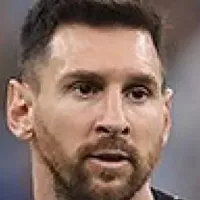
Lionel Messi is an Argentine professional footballer widely considered one...

A shoe is a protective and comfort-providing item of footwear...

Football is a family of team sports primarily involving kicking...
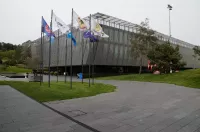
FIFA the F d ration Internationale de Football Association is...

Barcelona is a major city located on the northeastern coast...
Trending
47 minutes ago Saddiq Bey Proves Pelicans Right After Trade: Flipping the Narrative Brilliantly
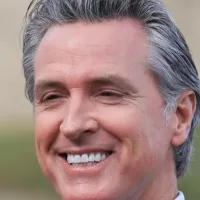
10 days ago Newsom supports age restrictions on social media citing parental experience and teen phone obsession.
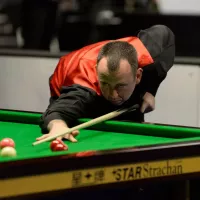
11 months ago Mark Williams' Status Uncertain for Friday's Game; Will Rest on Sunday.
48 minutes ago Kirill Kaprizov aims for Wild's goal record after scoring against St. Louis.
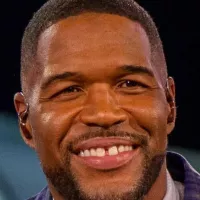
49 minutes ago Michael Strahan's Lifestyle Brand Expands with Belk Partnership and Career Announcement.

49 minutes ago Maggie and Jake Gyllenhaal's Bond: Closer Than Ever, Reflecting on Careers and Relationships.
Popular

Hillary Diane Rodham Clinton is a prominent American politician lawyer...

Jesse Jackson is an American civil rights activist politician and...

Ken Paxton is an American politician and lawyer serving as...

Jim Carrey is a Canadian-American actor and comedian celebrated for...

Bill Clinton served as the nd U S President from...

XXXTentacion born Jahseh Dwayne Ricardo Onfroy was a controversial yet...